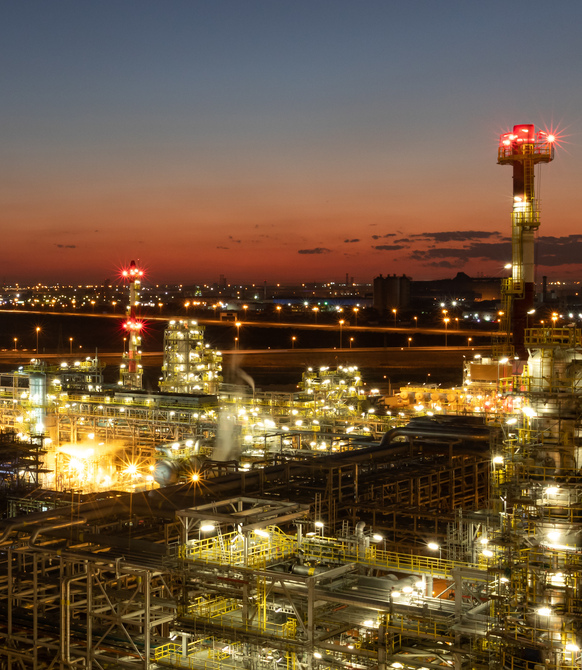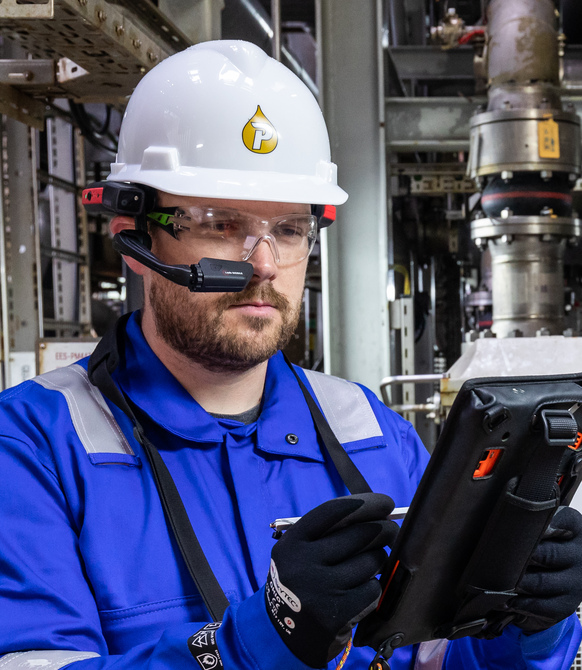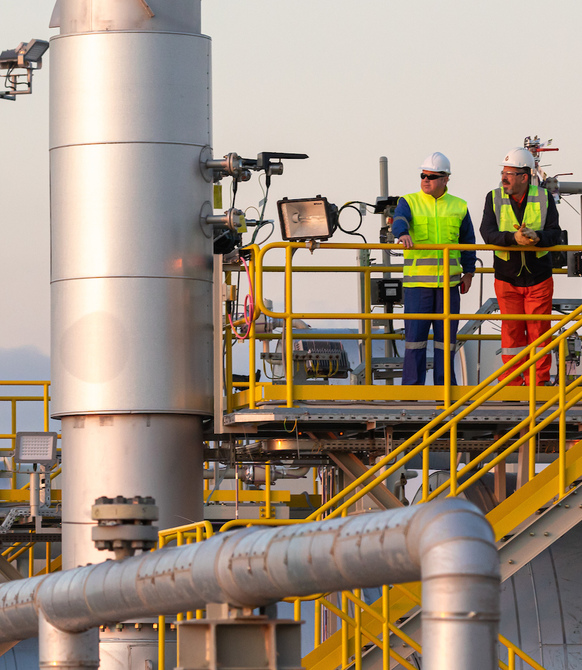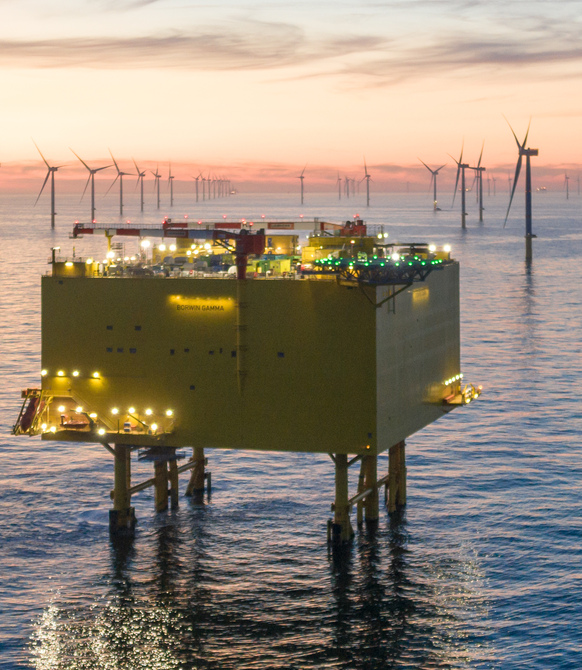20 January 2012
Expanding our offshore capabilities
In 2011 Petrofac committed to more than doubling our 2010 recurring profits by 2015; taking our offshore experience into the international EPIC market is one of the ways we will achieve that target. Bill Dunnett, managing director, Offshore Projects & Operations (OPO), explains how this part of the business will adapt to meet the challenge set by the group.
How will Offshore Projects & Operations differ from Offshore Engineering & Operations (OE&O)?
OPO is an international business focused on offshore engineering and construction projects including EPIC (engineering, procurement, installation and construction) contracts and the provision of operations management and maintenance services. We are not moving away from our traditional business, but we are enhancing and growing it geographically, organically and technically to take advantage of a growing market sector. Petrofac recognises the opportunities available in the offshore EPIC market and that OPO’s offshore experience is the route into it. Whatever we do however, we must maintain our focus on safety and integrity (in all senses of the word) and in that respect we will continue to ensure safe and secure operations in the way we always have.
What will the new business look like?
We will continue to have two service lines: operations, led from Aberdeen by Steve Bullock and offshore projects led by Doug Callum in Europe and West Africa, Ed Gedeon in the Middle East and Murugan Pitchai in Asia Pacific. Steve’s operations business will continue to expand geographically in the Middle East under Mani Rajapathy and Asia Pacific under Roy Armishaw. This is in addition to the new teams we have set up in Sharjah and Kuala Lumpur under Ed and Murugan respectively to lead the offshore projects growth in these areas.
What does the business need to do in order to achieve these ambitious growth targets?
The growth we are looking at between 2010 and 2016 is significant and it won’t just happen through organic growth alone. We will start to look at small acquisitions and strategic partnerships to enhance our offshore project capabilities whilst taking the opportunity to further exploit the new energy sector and decommissioning. We will also build on our experience in floating production.
We’ve talked about our commitment to the North Sea a lot recently. Given the international focus of OPO is that really still the case?
Absolutely. The operational and support centre for OPO will still be Aberdeen and the North Sea remains a key market for us and we are very well known here. We will continue to go after Brownfield modifications, operations, maintenance and EPIC projects – in all of which there are many more prospects. And of course the offshore wind and decommissioning opportunities in the North Sea are significant. The announcement of our £30 million three year contract win with GDF Suez E&P UK was a great example of our continued commitment to the area. It’s a new relationship and will generate around 100 jobs over the course of the contract whilst also making the most of the incredible experience we have in the teams based in Aberdeen and Great Yarmouth. So yes, we are still very much committed to the North Sea.
What are the key things that OPO and the people that work in OPO need to do to achieve the step change that will result in this growth? It’s not just about winning EPIC contracts, is it?
No it’s not; behavioural changes are required as well. Fundamentally, Petrofac identified a need to change its approach. Traditionally we’ve worked in silos, insulated within our business units and we were almost competing with one another. With the introduction of our Integrated Energy Services division [IES, incorporating our Production Solutions, Developments and Training Services business units] there is a much greater opportunity to collaborate and provide our customers with all encompassing ‘life of asset’ services. We’ve already been working together successfully on the Berantai and SEPAT contracts, we recently announced our partnership in the Greater Stella Area for Ithaca and we’ve appointed a focal point to work across OPO and IES – we’re taking this new approach very seriously. We’ve also been developing a closer relationship with our colleagues in Engineering & Consulting Services (ECS) in Woking. The team there is an engineering centre of excellence capable of serving the Petrofac business and external customers. We need to make the most of their significant FEED and conceptual design capabilities as well as their strategic position – they get involved with projects in the very early stages which creates an opportunity to engage OPO early on in the project too so it makes sense for us to be working closer together.
Growth such as this can be a lot of hard work. What’s in it for individuals working in the business today?
OPO is a growth driver for Petrofac – it’s our chance to really step out and bring more to the table in terms of income and profit. For those who’d like to take them, this results in opportunities to move around the business, to travel, to develop their careers. Ultimately, I hope everyone in OPO feels proud to be part of such a successful business.
What will be our biggest challenge going forward as OPO?
We need to get better at telling the story and encouraging people to come and work at Petrofac. We all have a responsibility to sell Petrofac and I encourage everyone to think of someone they believe would be a perfect fit for us and let them know it. This is in an incredibly exciting business to be a part of and we need to get that message out there. More importantly, our challenge will be to successfully maintain safe operations whilst we grow the business. It is not acceptable for us to let our standards slip whilst we make these changes. Though the future for OPO is different from its past, as far as our current projects and contracts are concerned we will continue to deliver safe operations whilst we prepare our business for future growth.








